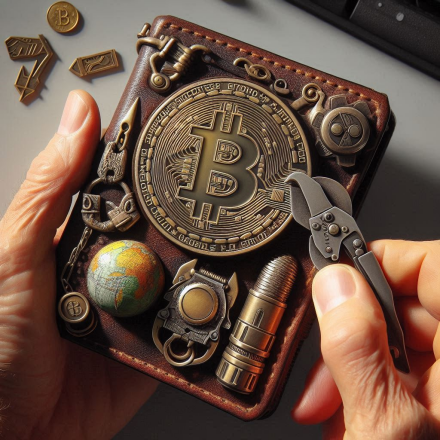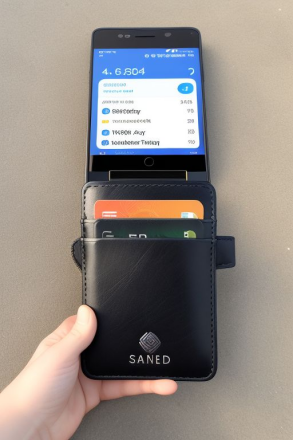As digital assets gain popularity, finding a reliable and user-friendly wallet for your cryptocurrencies has become highly relevant. But how should you choose the best one? Here is a guide on how to break down the various types of wallets, their features and steps to take in practice to make the right choice.
What is a Crypto Wallet?
A crypto wallet, by definition, refers to a tool providing users with storage and management of their digital assets, such as Bitcoin, Ethereum, and other cryptocurrencies. Unlike classical wallets, crypto wallets do not store cash but rather cryptographic keys-public keys, which are like an account number, and private keys, similar to a password. You can't send or receive cryptocurrencies with a wallet in a safe way. Here comes the benefit of the different types of wallets, so one needs to know which type suits best.

Types of Crypto Wallets: A Breakdown
- Hardware Wallets: Hardware wallets are devices that look like USB drives. They keep private keys off the internet and therefore are safer against hacks and malware. Examples are Ledger Nano S and Trezor. They are very secure and better suited for long-term investors. In 2021, Ledger disclosed that they had sold over 4 million devices worldwide, meaning that offline wallets, regarded as free from hackers, were utilized by crypto investors.
- Software Wallets (Hot Wallets): Internet-based wallets are generally available in mobile and desktop applications and are thus highly convenient for active users. Among the most popular are Coinbase Wallet, MetaMask and Trust Wallet. Most software wallets have multi-factor authentication that protects against unauthorized access but is not foolproof. According to Cointelegraph, most attacks on online wallets are phishing rather than wallet vulnerabilities.
- Paper Wallets: Paper wallet is a paper printout of your public and private keys. It is very secure if stored appropriately but can be lost, stolen, or damaged easily. While it may sound old-fashioned, a paper wallet remains one of the most secure options if you are planning on holding great stores of cryptocurrency for extended periods of time and don't require frequent access.
- Web Wallets: These are hosted online by exchange platforms or other third-party providers. Web wallets are easy to use, but since private keys are stored online, there's a risk if the provider's security is compromised. Such wallets are highly accessible from any internet-connected devices. In 2022, over $1.9 billion was stolen in crypto exchange hacks that demonstrate the danger of having large sums of cryptocurrency within web wallets.
- Custodial vs. Non-Custodial Wallets: Custodial wallets have private keys to your wallet which are held by the provider. This type of wallet is popular with first-time users for its ease of use. While, non-custodial wallets provide your owning your keys. That means you solely control your money. Non-custodial wallets are safer but involve responsibility on your end to keep your keys safe. A Binance survey reported that 71% of crypto users are fond of non-custodial wallets because of the additional control over their money, despite needing responsibility over securing keys.
Choosing the Right Wallet for Your Needs
Controlling factors for choice of a crypto wallet include the following:
- Security Requirements: For long-term storage of large-sized cryptocurrencies, a hardware wallet or even a paper wallet is most appropriate. In performing daily transactions, balanced performance and safety are usually provided by software wallets.
- Ease of Access: There are traders who constantly make trades from the hot wallets, either through software wallets or web wallets because they provide quick access.
- Cost: Hardware wallets are typically free on the front end but may incur costs on the backend. Software or web wallets are free whereas a paper wallet is considered cost-effective, though one needs to take adequate precaution towards proper storage.
- Asset Compatibility: There exist different kinds of digital assets which may not be accommodated by each wallet. Ensure that the wallet you opt for supports all the digital assets you plan to use.
- Backup and Recovery: If you are going non-custodial, then ensure that the wallet has a good backup option. You should also find some wallets offering recovery phrases that could be used in case you misplace your wallet or if it gets stolen.

Best Practices for Using Your Wallet
- Turn on Two-Factor Authentication (2FA). Always remember to have an added layer of security with 2FA, more so on your hot wallets.
- Store your recovery phrases and private keys in an off-line secure location, for example, a safety deposit box.
- Use a VPN When accessing web wallets or software wallets, especially accessed over public networks, use a VPN that adds additional layers of protection while accessing the wallet.
Future Outlook
The selection of the appropriate crypto wallet depends solely on usage habits and security measures preferred by the user along with assets stored. For long-term investors, hardware wallets are ideal, whereas for everyday use, convenience best suits the system offered by a software wallet. As more and more people put their money into digital assets, having a secure wallet and following best practices is crucial to protecting investments.


Shielding Yourself from Digital Threats: Financial Security Tips

The Intersection of Technology and Regulation in Banking

The Rise of Sustainable Finance: Principles, Trends, and Market Impact

The Role of Ethical Investing in Financial Markets

The Role of Blockchain in Transforming Traditional Banking

Best Ways to Save Money on Household Expenses

The Future of Financial Markets in the Context of Technological Disruption
